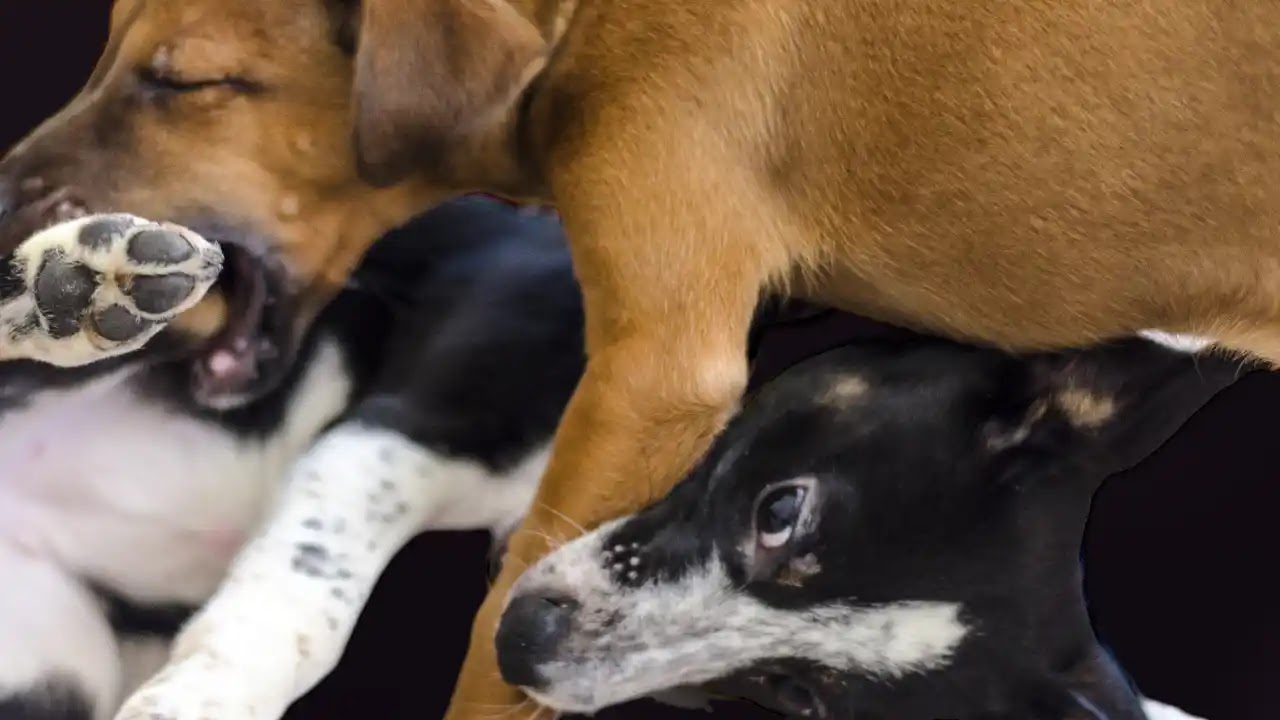introduction
As dog owners, it's not uncommon to see our puppies play fighting too roughly. While some level of play fighting is normal and even beneficial for puppies, it's important to monitor their behavior and intervene if necessary to prevent aggression and injury. In this post, we'll discuss the concerns surrounding rough play fighting, what you can do to prevent it, and when it's time to seek professional help.
table about Rough puppy play
| Topic | Information |
|---|---|
| Puppy Play Fighting | Play fighting is a normal behavior among puppies and is a way for them to learn social skills. |
| Recognizing Rough Play | If puppies are growling, biting too hard, or showing signs of discomfort, the play may be too rough. |
| Importance of Monitoring | It's crucial to monitor play fights to ensure they don't escalate into actual aggression. |
| Intervening when necessary | If the play becomes too rough, you can redirect their attention or separate them briefly for a break. |
| Teaching Bite Inhibition | Puppies should learn bite inhibition to control the force of their bites during play. |
| Providing Appropriate Outlets | Offer your puppies plenty of toys and play sessions to redirect their energy in a positive way. |
| Seeking Professional Advice | If you're concerned about your puppies' behavior, consult a professional trainer or veterinarian. |
| Establishing Proper Socialization | Socialize your puppies with other well-behaved dogs to learn appropriate play behaviors. |
| Consistency in Training and Rules | Maintain consistent training techniques and establish clear rules to guide their play interactions. |
| Gradual Separation when Necessary | If play fighting becomes too intense, separate the puppies gradually to calm them down. |
Rough puppy play? Here's what to do.
Puppy Play Fighting
Play fighting is a normal behavior among puppies and is an essential part of their development. It helps them learn important social skills and establish their place within the pack. Play fighting allows puppies to practice communication, body language, and bite inhibition.
Recognizing Rough Play
While play fighting is natural, it's crucial to differentiate between playful behavior and aggression. Pay attention if you notice excessive growling, intense biting, or signs of discomfort such as yelping or hiding. These signs could indicate that the play is becoming too rough and may need intervention.
Importance of Monitoring
Always supervise puppies during play fights to ensure they don't escalate into actual aggression. This monitoring allows you to intervene and redirect their behavior if necessary. Keep an eye on their body language, ensuring they appear relaxed and engaged.
Intervening When Necessary
If play fighting becomes too rough, it's important to intervene appropriately. You can redirect their attention by introducing a toy or engaging them in another activity. Alternatively, separate them briefly for a time-out to calm down. This teaches them that excessive roughness is not tolerated.
Teaching Bite Inhibition
Bite inhibition is a crucial skill for puppies to learn during play. It involves teaching them to control the force of their bites, so they don't cause harm to other dogs or humans. Encourage soft mouthing and reward gentle play. If a puppy bites too hard, give a firm "no" and withdraw attention briefly.
Providing Appropriate Outlets
Ensuring your puppies have plenty of toys and play sessions is essential to redirect their energy in a positive way. Provide them with a variety of chew toys, interactive toys, and opportunities for physical exercise. This will help prevent excessive roughness during play fights.
Seeking Professional Advice
If you have concerns about your puppies' behavior or their play fights, it's wise to consult a professional trainer or veterinarian. They can assess the situation and provide guidance tailored to your specific needs. They may offer additional training techniques or behavior modification strategies.
Establishing Proper Socialization
Socializing your puppies with other well-behaved dogs is essential for their development. By interacting with other dogs in a controlled environment, they learn appropriate play behaviors and proper social cues. This helps them understand boundaries and develop positive relationships with other dogs.
Consistency in Training and Rules
Consistency is key when training puppies and establishing rules for their play interactions. Use positive reinforcement techniques to reward desired behavior and discourage unwanted behavior consistently. Set clear boundaries and enforce them consistently to help them understand what is acceptable during play fights.
References:
- ABC of Dog Training & Behavior: Play Fighting and Rough Play in Dogs - The Labrador Site
- The Humane Society of the United States: Puppy Play Biting
- American Kennel Club: Puppy Play Biting - Nipping and Rough Play


